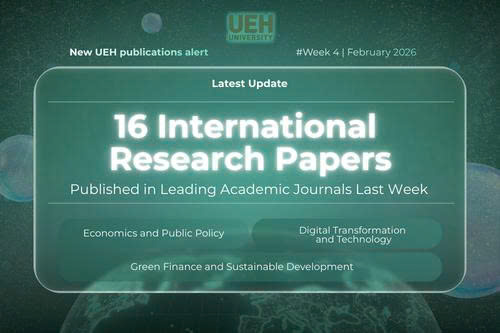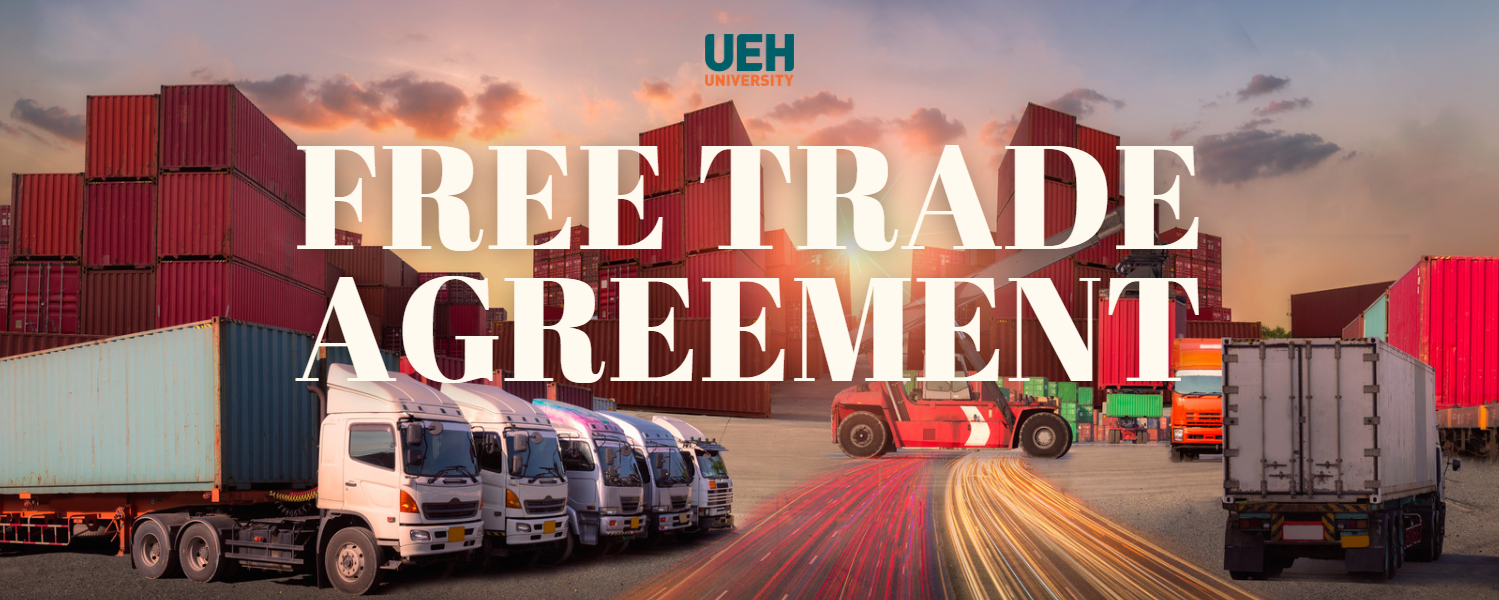
FTA - Free Trade Agreement: The key to international integration?
09 May, 2023
According to the International Trade Administration, a free trade agreement is an agreement between two or more countries to lower import and export restrictions. With a free trade policy, there are little to no government tariffs, quotas, subsidies, or prohibitions that prevent the exchange of products and services across international borders.
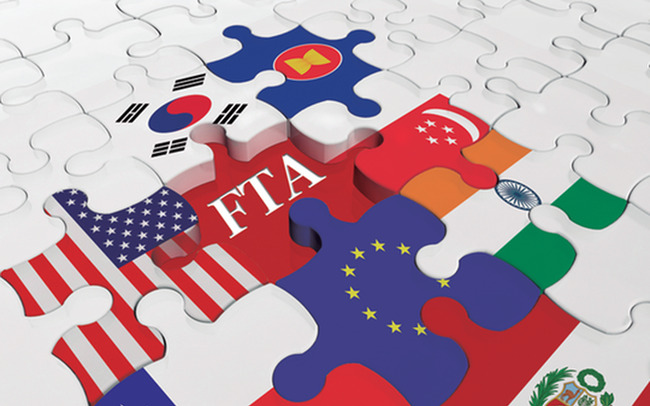 (Source: https://tapchicongthuong.vn/)
(Source: https://tapchicongthuong.vn/)
How FTAs work?
In the modern world, a formal and mutual agreement between the participating countries is frequently used to achieve free trade policies. A free-trade policy, however, can just be the removal of any trade limitations.
A government doesn't need to take specific action to promote free trade. This hands-off stance is referred to as “laissez-faire trade” or trade liberalization.
Governments with free-trade agreements or policies in place don't necessarily give up all import and export regulation or do away with all protectionist measures. There are only a few free trade agreements (FTAs) in contemporary global trade that lead to entirely free trade.
For instance, a country may permit free commerce with another country with restrictions that prohibit the import of certain pharmaceuticals that have not been approved by its regulators, unvaccinated animals, or processed foods that do not adhere to its standards. For example, in Vietnam, the Ministry of Agriculture and Rural Development has a regulation banning pesticides, so other countries cannot export this item to Vietnam.
Conversely, in order to shield domestic producers from foreign competition in certain industries, it might have rules in place that specifically exclude certain items from tariff-free status. For example, the application of anti-dumping and anti-subsidy measures against cane sugar imported from Thailand by the Ministry of Industry and Trade of Vietnam has had a positive impact on the sugar industry, helping farmers to consume all harvested sugarcane and significantly increased income from sugarcane.
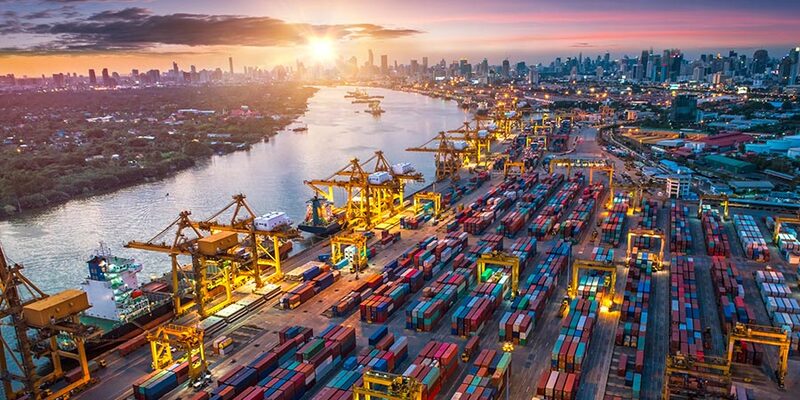 FTA enhances international trade and boosts economic growth
FTA enhances international trade and boosts economic growth
(Source: https://www.qad.com/)
Free Trade Agreement: The key to international integration?
Rapid Growth
Numerous nations have experienced tremendous economic growth thanks to free trade. Many nations like Japan and Singapore have been successful in drawing in capital from international investors and offering relatively well-paying jobs for local employees by concentrating on exports and resources where they have a strong comparative advantage.
Global Prices Drop
Free trade fosters a competitive environment for customers where nations compete to offer their resources at the most affordable costs. As a result, producers are able to offer finished goods at lower prices, ultimately giving all consumers more purchasing power.
Business losses and unemployment
And yet, when a nation opens its borders to free trade, some people lose out economically. Local unemployment may result if domestic industries are unable to compete with overseas rivals. Large-scale enterprises might relocate to nations with lax labor and environmental standards, leading to child labor or pollution.
Increased Dependency on the Global Market
Free trade may also increase a nation's reliance on the outside market. For instance, a nation that produces certain items domestically may gain strategically even though their prices are lower on the global market. The nation might have to start these industries over from scratch in the case of a war or other calamity.
Vietnam actively participates in signing FTAs, opening up many opportunities for sustainable development
Vietnam joined the WTO as its 150th member in 2007 and pledged upon joining that it would completely abide by the WTO's accords on customs valuation, technical trade barriers (TBT), and sanitary and phytosanitary measures (SPS). A bilateral trade agreement (BTA) was reached between the US and Vietnam in 2000, and it became effective in 2001.
Vietnam is a member of the ASEAN Free Trade Area (AFTA) and the Association of SouthEast Asian States (ASEAN). Members of ASEAN, including Brunei, the Philippines, Indonesia, Laos, Burma, Malaysia, Singapore, Thailand, and Cambodia, are dedicated to making the region a vibrant trade hub as part of AFTA. Vietnam has negotiated trade agreements with the PRC, the Republic of Korea, Australia, New Zealand, India, Chile, and Japan in addition to the ASEAN nations. In 2015, it inked a trade pact with the Russian-led Customs Union bloc as well as a bilateral trade pact with Korea. Vietnam and the EU inked a free trade agreement in 2019. In August 2020, this agreement went into force. Vietnam and the EFTA nations are actively discussing a free trade agreement (Norway, Iceland, Liechtenstein, and Switzerland).
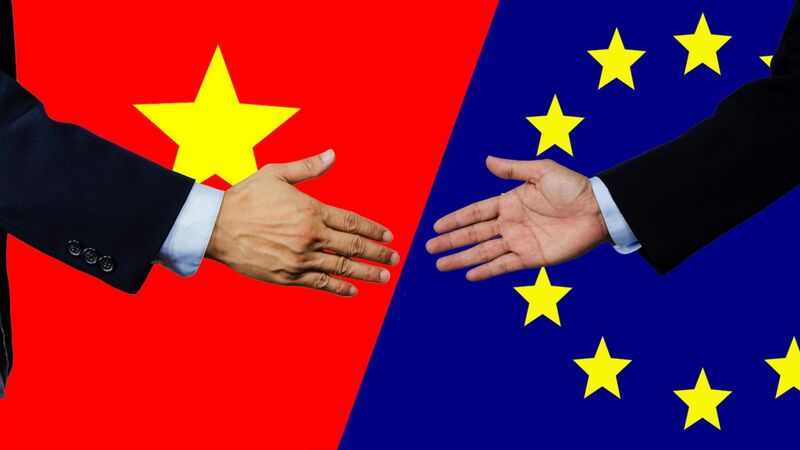 EVFTA - A significant new generation FTA between the EU and Vietnam
EVFTA - A significant new generation FTA between the EU and Vietnam
(Source: https://tapchicongthuong.vn/)
Especially, in new generation FTA like the EVFTA, there’re commitments related to sustainable development which can enhance Vietnam’s footsteps in sustainable development. Particularly, in the EVFTA, Chapter 13 Trade and Sustainable development has commitments to promote sustainable development, notably by fostering the contribution of trade and investment related aspects of labour and environmental issues.
Furthermore, Vietnam joined 10 other nations in signing the Comprehensive and Progressive Trans-Pacific Partnership (CPTPP), including Australia, Brunei, Canada, Chile, Japan, Malaysia, Mexico, New Zealand, Peru, and Singapore. For Vietnam, the agreement became formally operative on January 14, 2019.
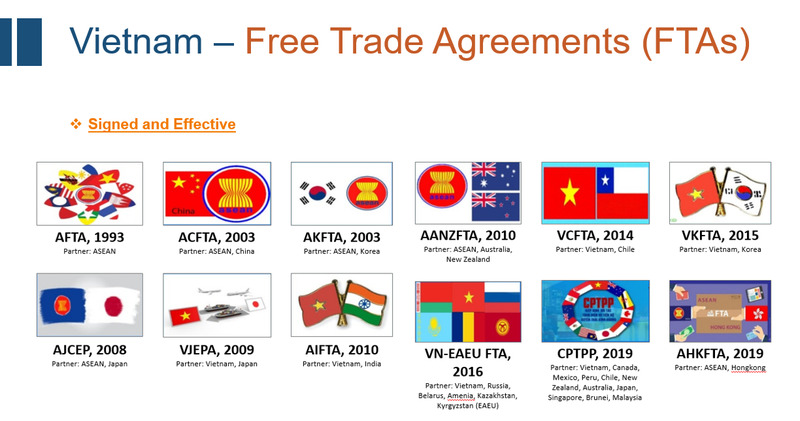 Some of Vietnam’s FTAs
Some of Vietnam’s FTAs
(Source: https://mtavietnam.com/)
03/04/2023, The Ministry of Industry and Trade said that Vietnam and Israel have agreed on the content and officially announced the end of negotiations on the Vietnam - Israel Free Trade Agreement (VIFTA), preparing to sign a bilateral trade agreement in the year 2023.
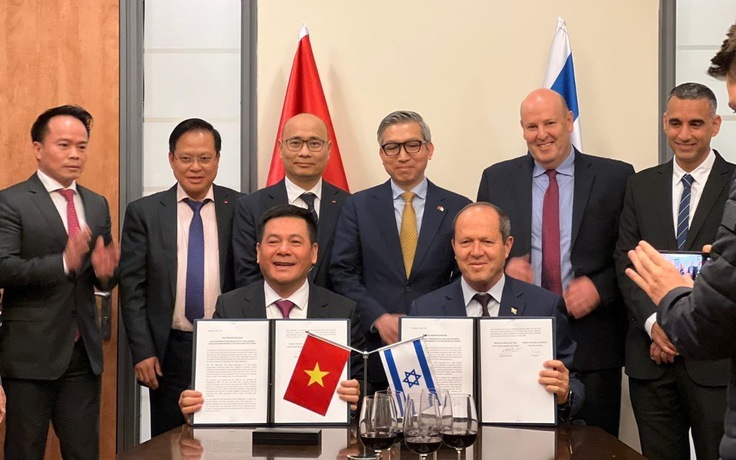 Completing negotiations on the Vietnam - Israel Free Trade Agreement
Completing negotiations on the Vietnam - Israel Free Trade Agreement
(Source: https://tapchicongthuong.vn/)
Signing FTAs can significantly boost Vietnam’s economy as well as FDI but it also increases competition for Vietnam businesses. Along with trading opportunities, there are a lot of threats such as unemployment and difficulties to satisfy the global standards for goods and services.
To take advantage of opportunities and overcome challenges, it is necessary for state agencies and the business community to grasp the commitments of Vietnam and its partners to properly implement it, and to take timely actions. to improve competitiveness for themselves and for the whole economy.
To participate more deeply in the global value chain, Vietnam also needs to consider gradually overcoming the disparity between FDI enterprises and domestic enterprises in taking advantage of FTAs, expanding markets and enhancing export values. It is also necessary to well implement institutional reform to improve macro competitiveness. Good institutions that ensure publicity and transparency and a stable policy environment and an open business environment will create favorable conditions for attracting investment and creating favorable conditions for people and businesses to develop production and business, especially export development. Besides, along with receiving obvious benefits from attracting FDI, such as promoting technology transfer, creating more jobs and improving workers' qualifications, helping industries and sectors.
News, photos: Department of Student Affairs UEH



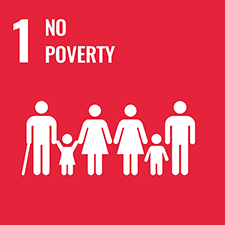
![[Research Contribution] Sustainable Manufacturing: A Driving Force for the Green Economy and the Challenges Ahead](/images/upload/thumbnail/ueh-thumbnail-639082294182922007.png)
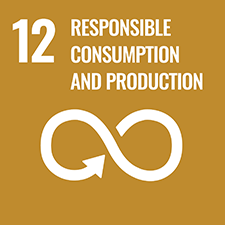
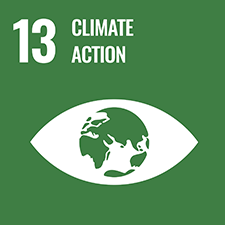
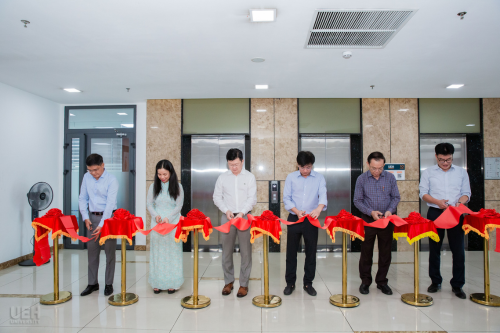


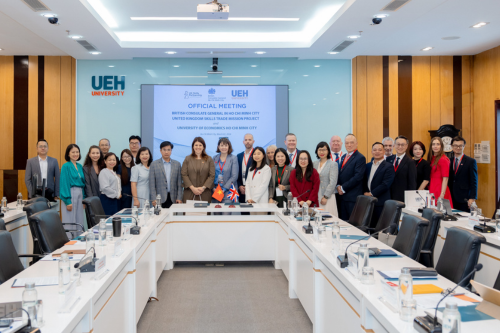

![[Research Contribution] The influence of greenwashing on green purchasing intentions in the electric motorbike sector: the mediating role of green brand trust and green word-of-mouth of GenZ](/images/upload/thumbnail/ueh-thumbnail-639081264718342243.png)
